huan68 wrote:
Here’s a review I found in my Smith of Wootton Major, that the original owner kept.
This would have been from a U.K. newspaper according to adverts on the reverse side. Which one I don’t know.
That's great! According to the annotated lists of early reviews (George Thom(p)son in Mythlore) that's from The Times on 11 November 1967.
I just recently picked up copies of the reviews of FOTR and of LOTR as a whole, by Louis J. Halle in The Saturday Review.
The latter review takes an interesting look at the interplay between history and fiction (and at how they are not so mutually exclusive as one might think): "Fiction differs from history because it didn't really happen...This distinction, however, as we learn when we lose our innocence, is not quite the same as the distinction between true and false."
The former review is compelling - it immerses itself into the work: "Western scholarship has neglected these Hobbit chronicles of the Third Age which have come down to us in the Red Book of Westmarch. The general reader has had access to them only through Professor Tolkien's earlier study, "The Hobbit," published here in 1938." It also prefigures the theme of the later review, referring to "Students who recognize that history is a branch of literature" and adding that "Surely the truth is that mythology and history are not really two different fields in terms of what one might call the higher authenticity. (The authors of the Pentateuch must have known this well.)"
On the more prosaic side, the introduction to the later review states that the work is an "allegorical history" only for the reviewer to make it plain he does not think that! And one wonders what he made of the decision to insert the map with the subtitle "Could the land of Morder be Russia?"
The latter review takes an interesting look at the interplay between history and fiction (and at how they are not so mutually exclusive as one might think): "Fiction differs from history because it didn't really happen...This distinction, however, as we learn when we lose our innocence, is not quite the same as the distinction between true and false."
The former review is compelling - it immerses itself into the work: "Western scholarship has neglected these Hobbit chronicles of the Third Age which have come down to us in the Red Book of Westmarch. The general reader has had access to them only through Professor Tolkien's earlier study, "The Hobbit," published here in 1938." It also prefigures the theme of the later review, referring to "Students who recognize that history is a branch of literature" and adding that "Surely the truth is that mythology and history are not really two different fields in terms of what one might call the higher authenticity. (The authors of the Pentateuch must have known this well.)"
On the more prosaic side, the introduction to the later review states that the work is an "allegorical history" only for the reviewer to make it plain he does not think that! And one wonders what he made of the decision to insert the map with the subtitle "Could the land of Morder be Russia?"
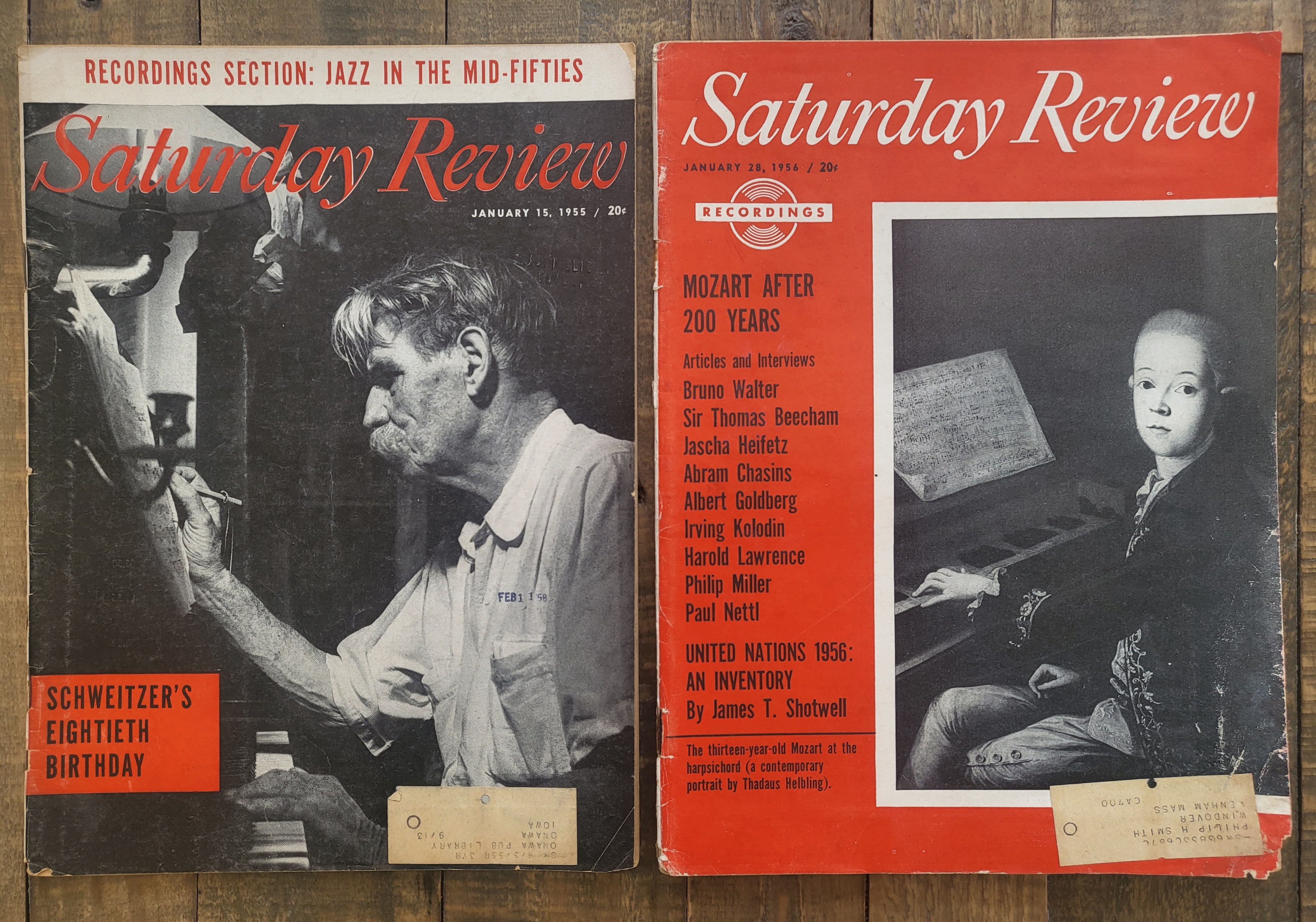
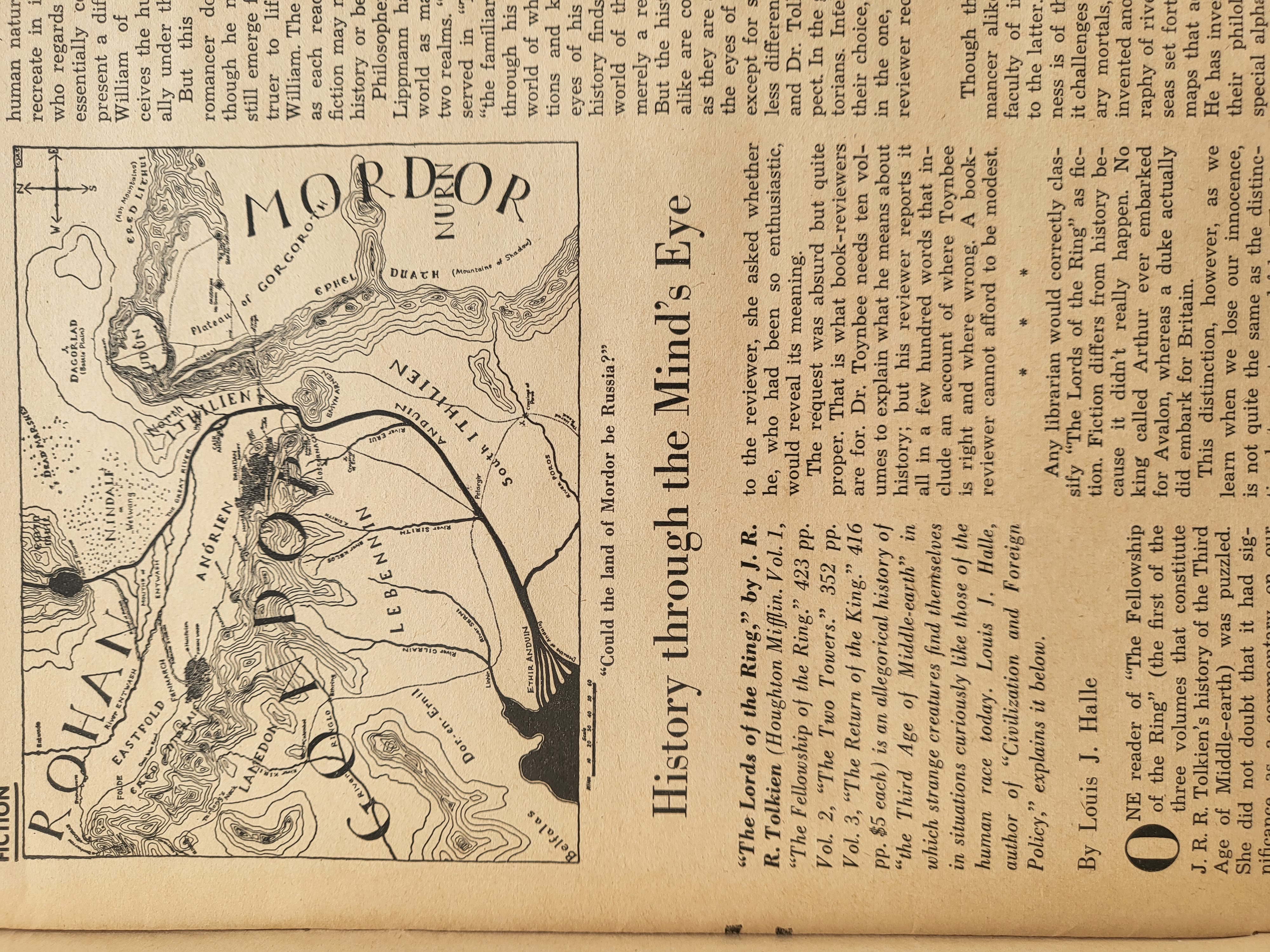
From “The Hobbit War” by Douglas J. Stewart (“I ...hate Tolkien’s The Lord of the Rings with passionate particularity”) in The Nation, 9 Oct 1967. The cartoon by Art Wood is amusing.
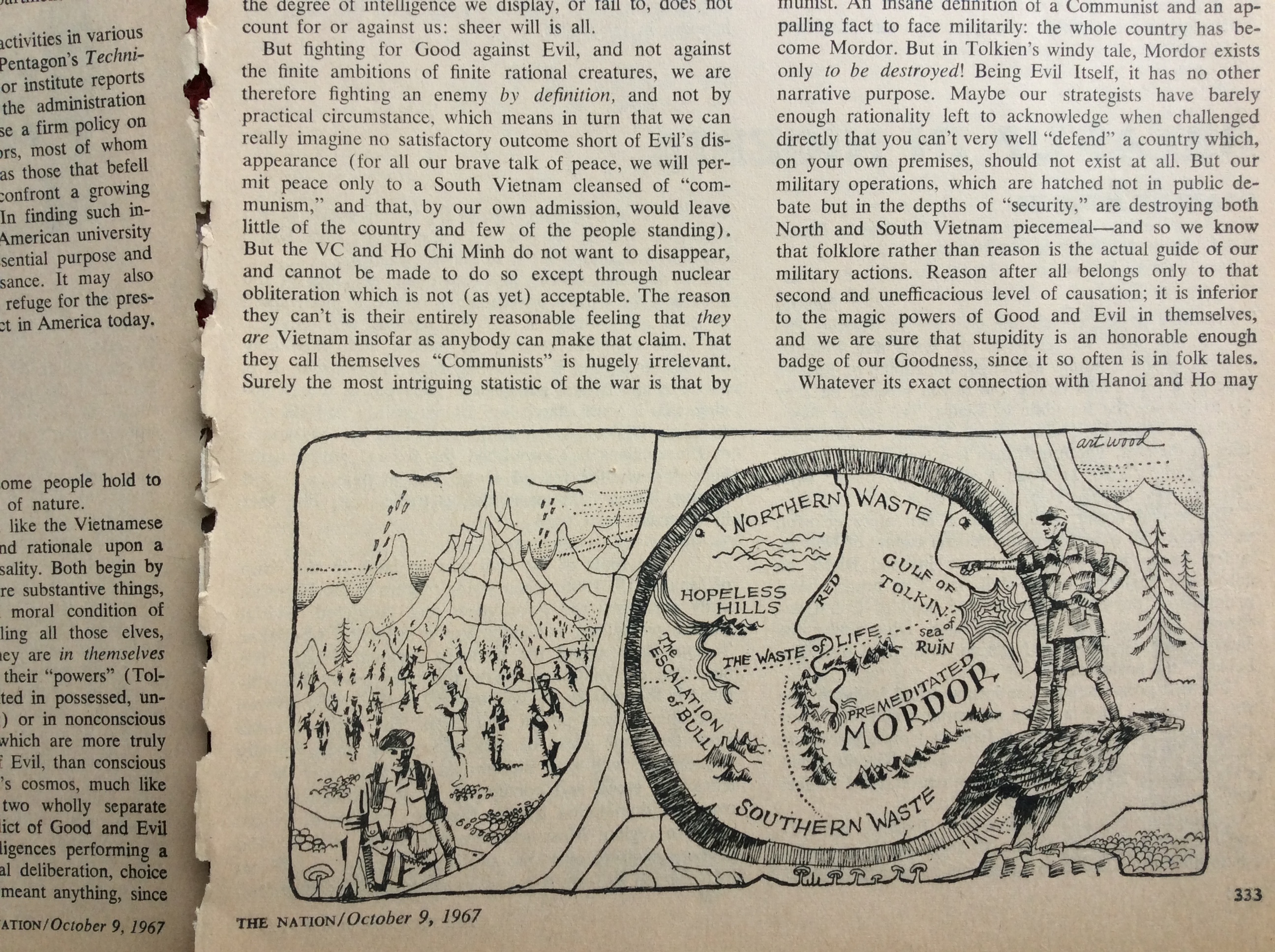






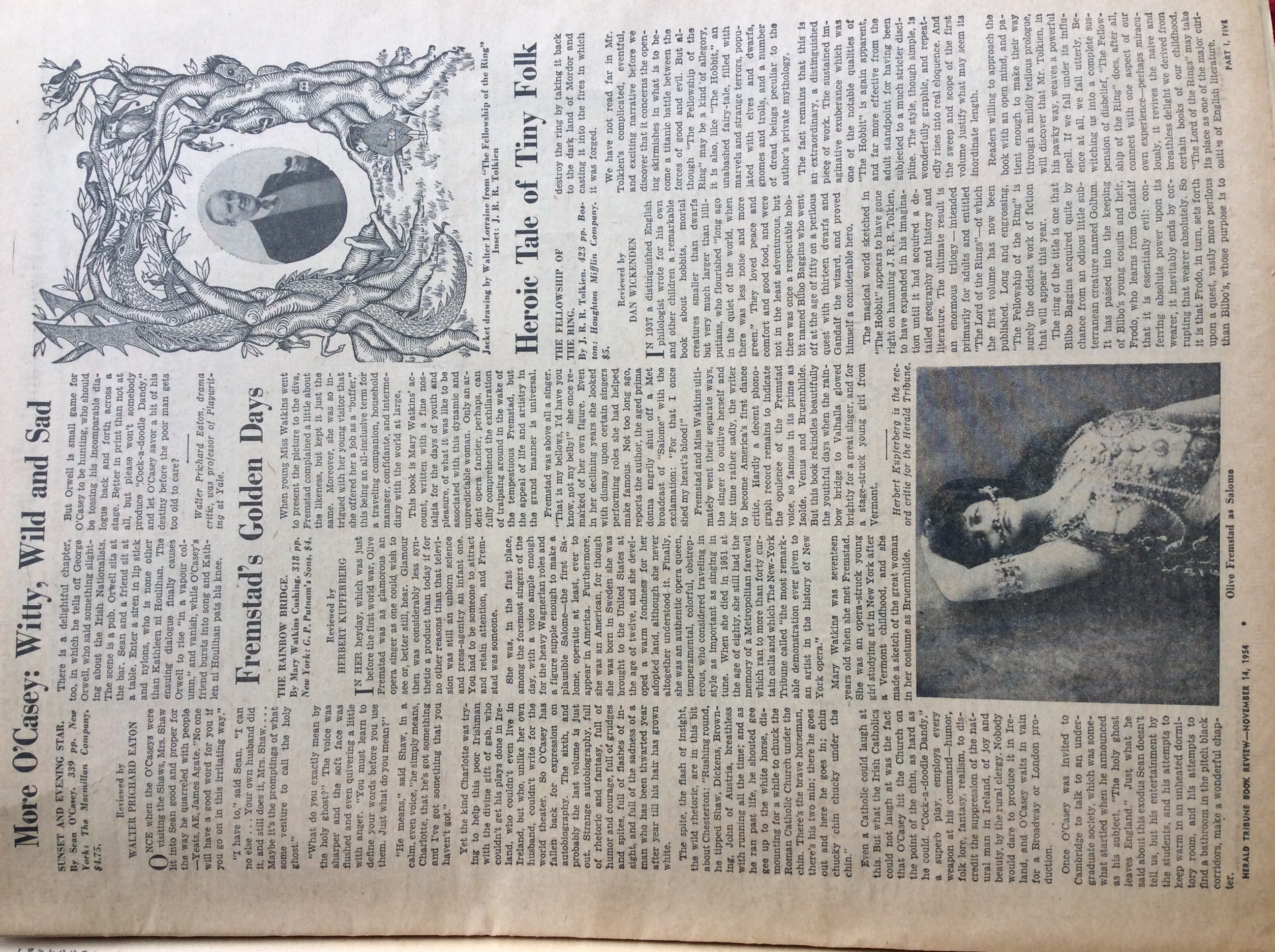
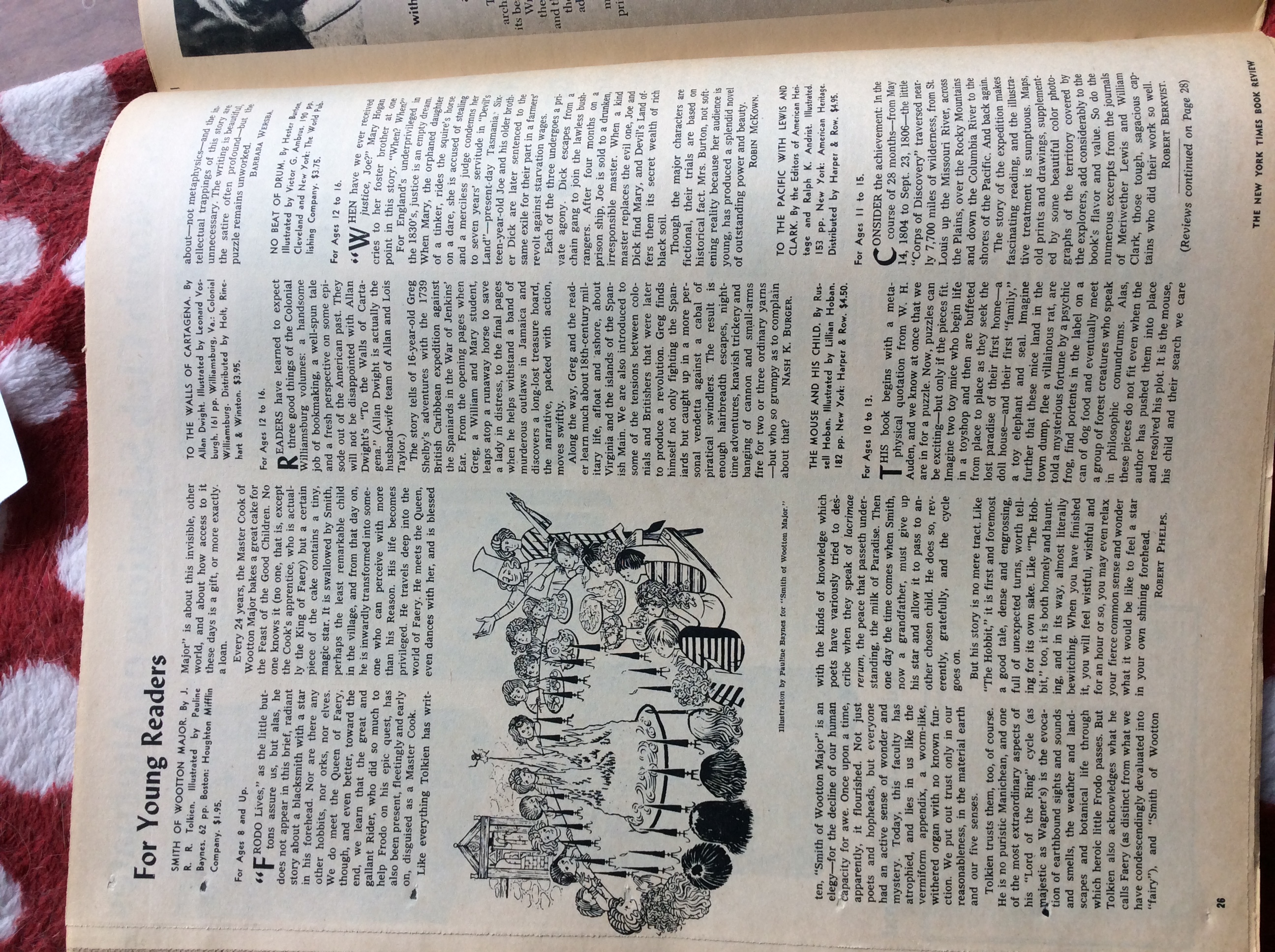
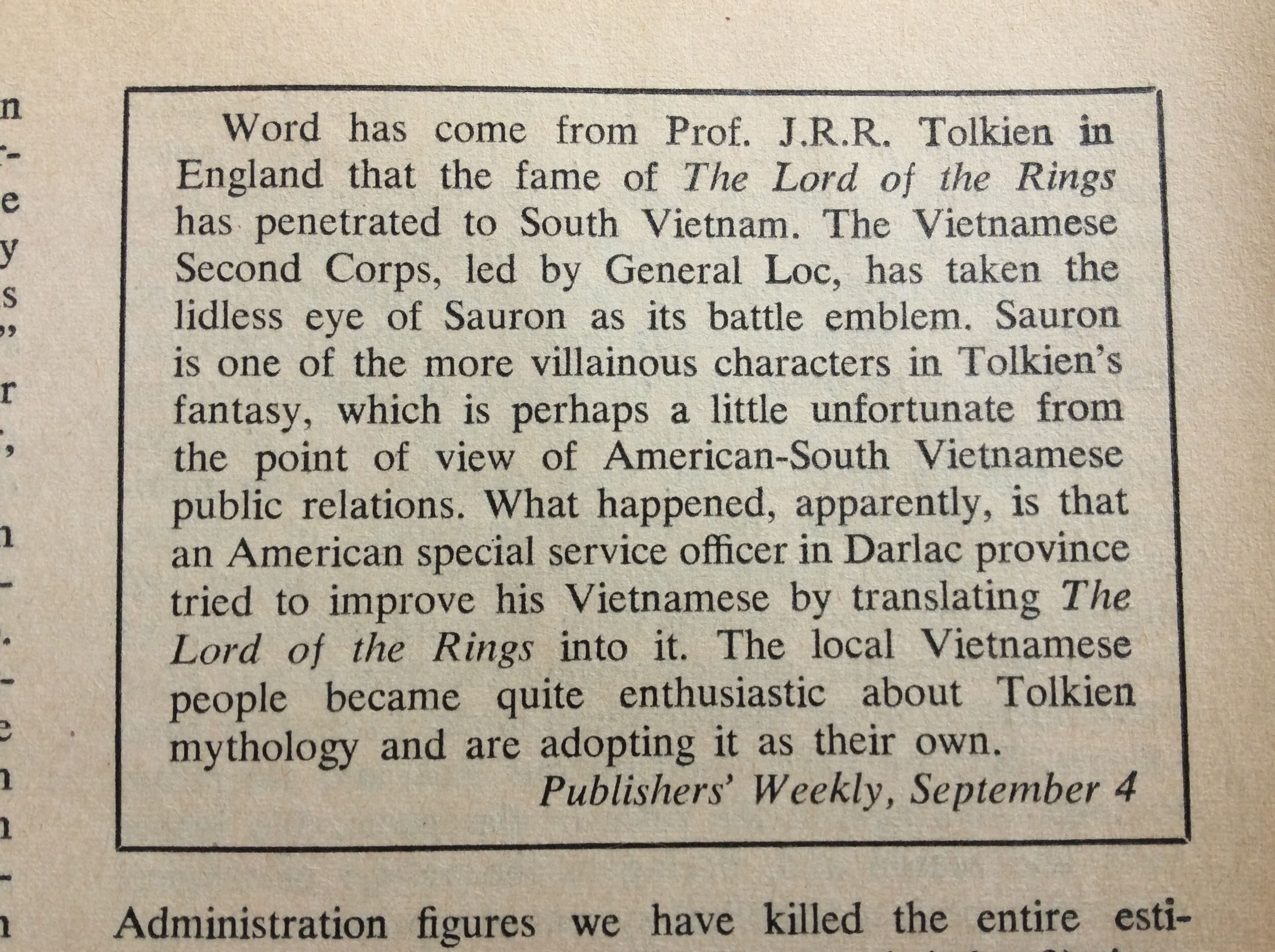
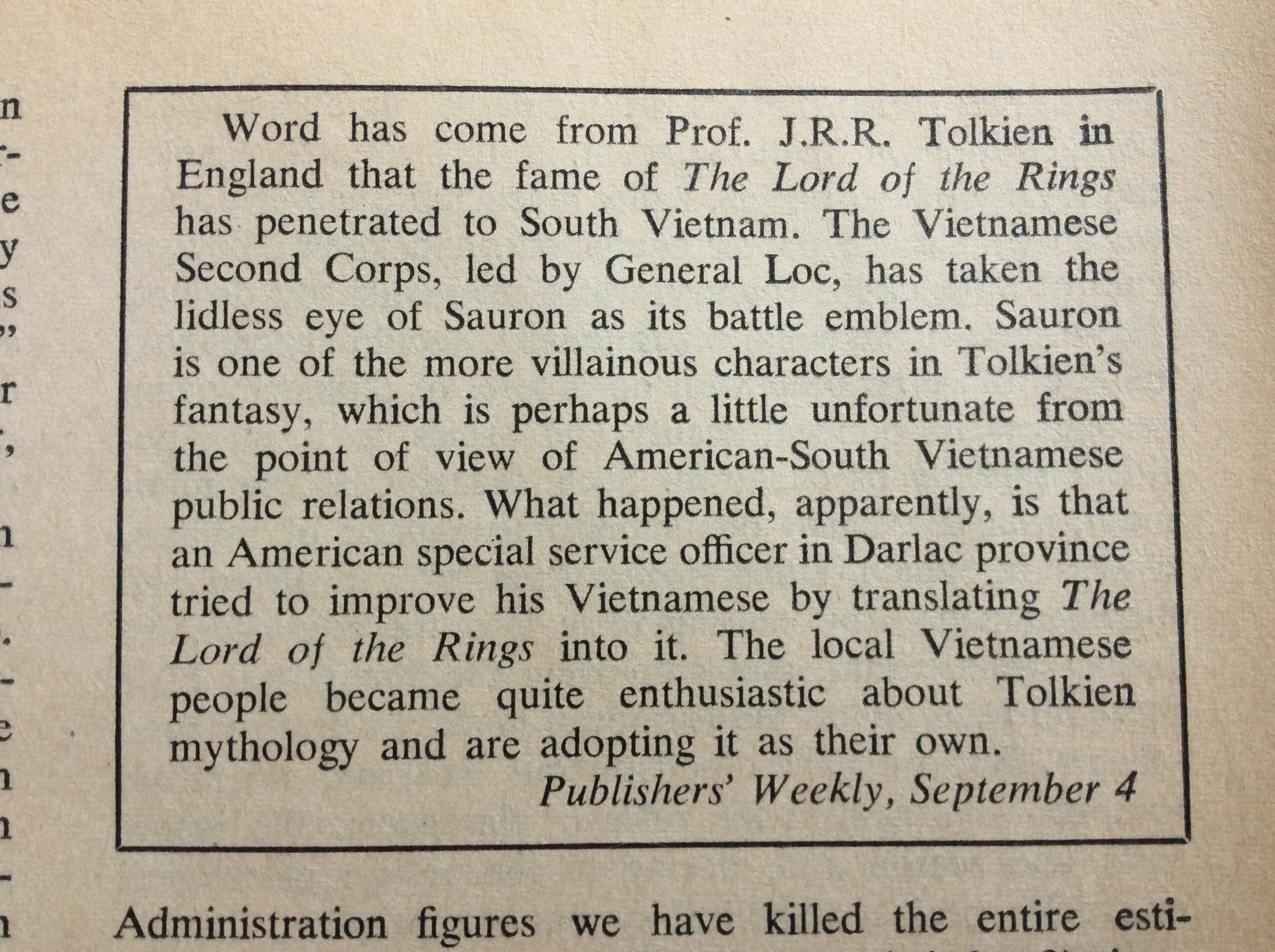
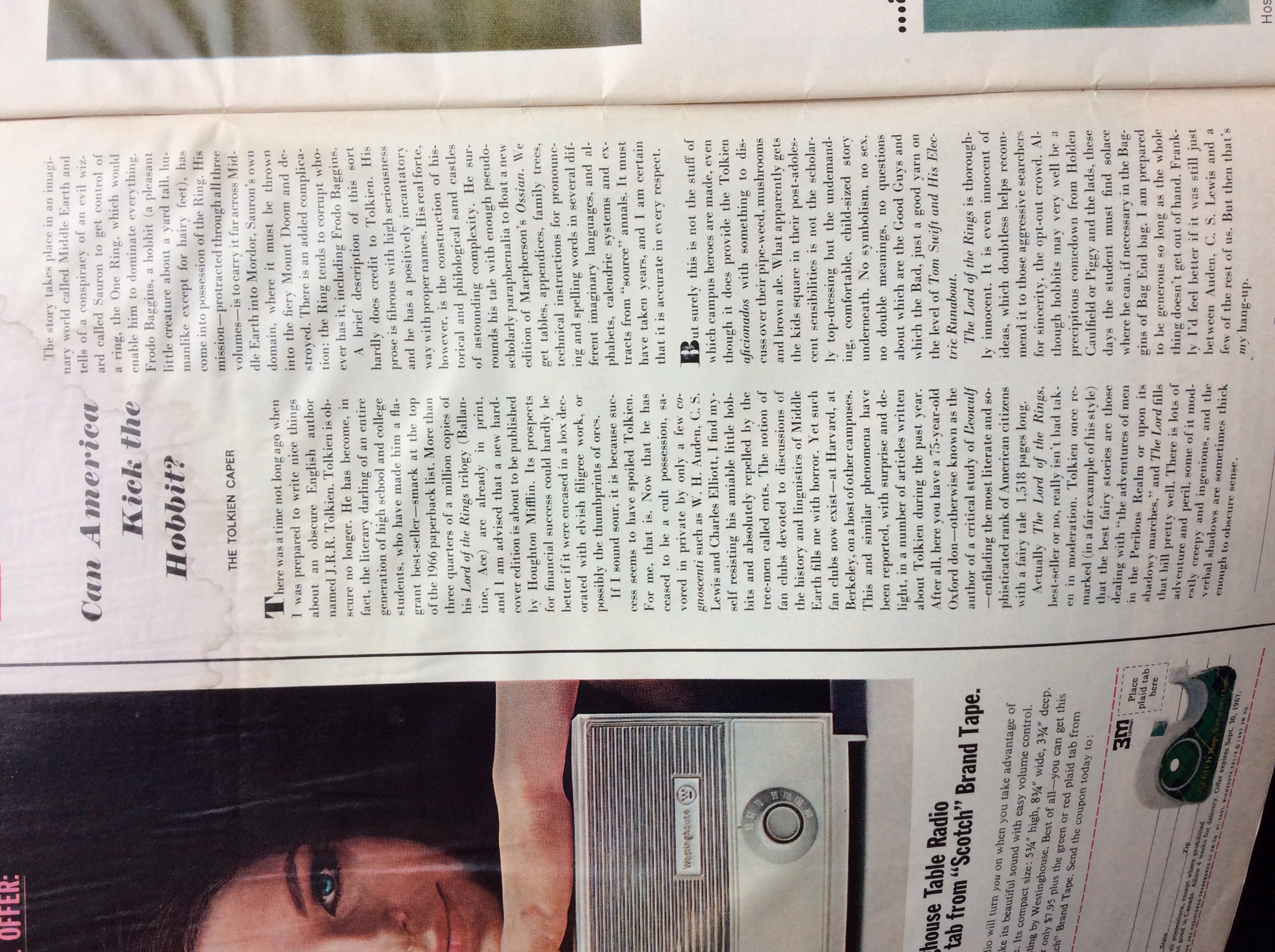
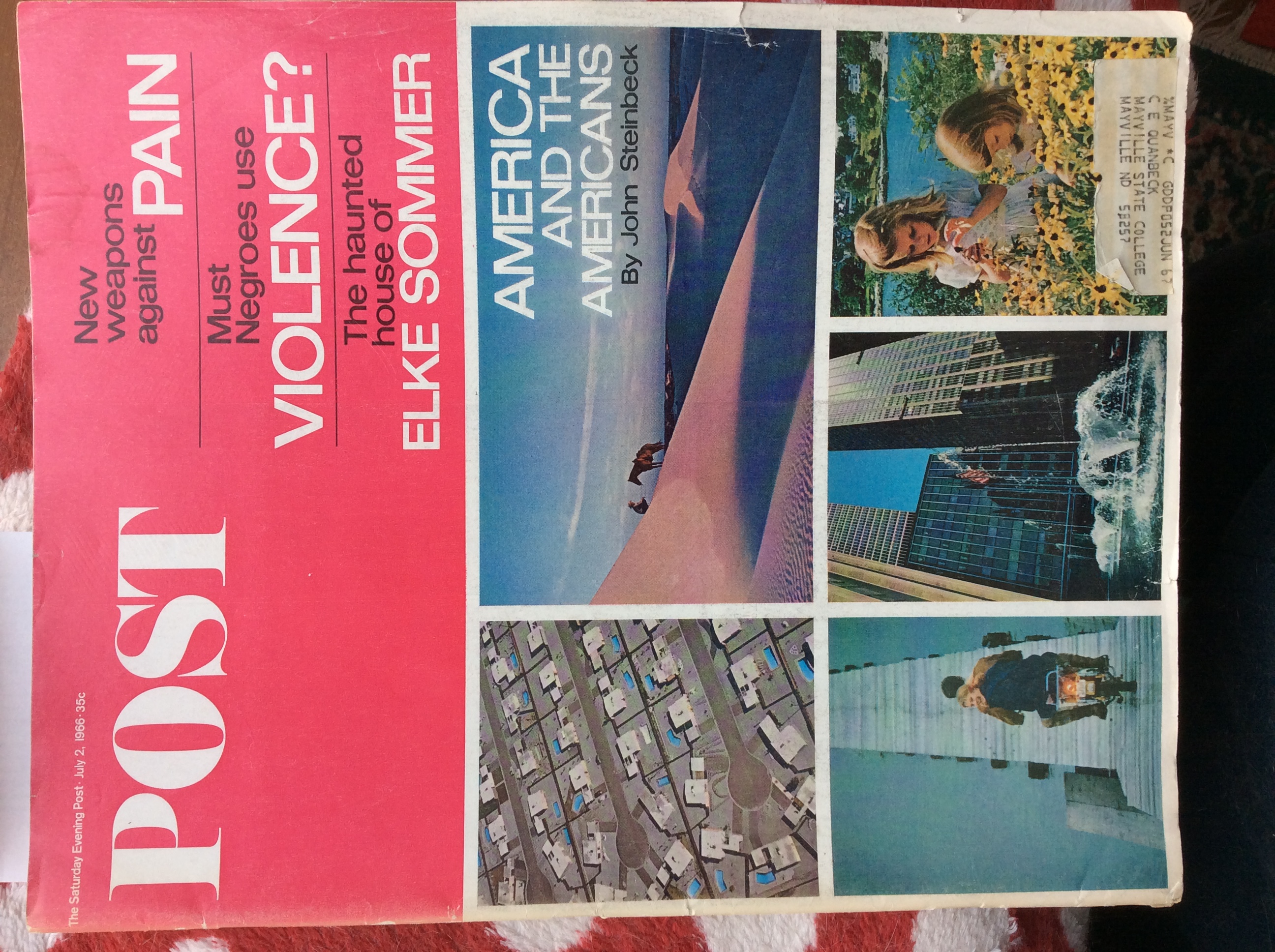
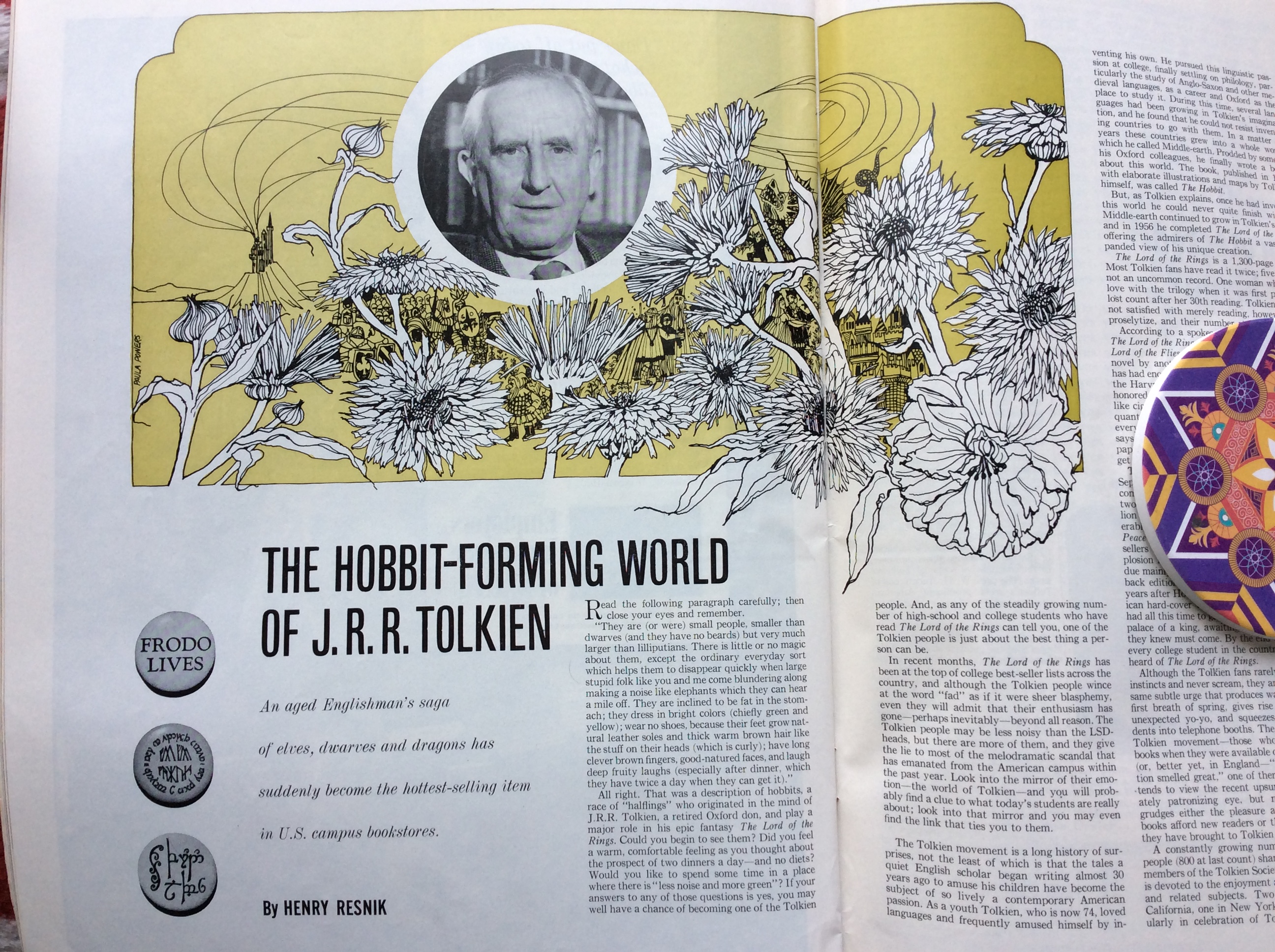
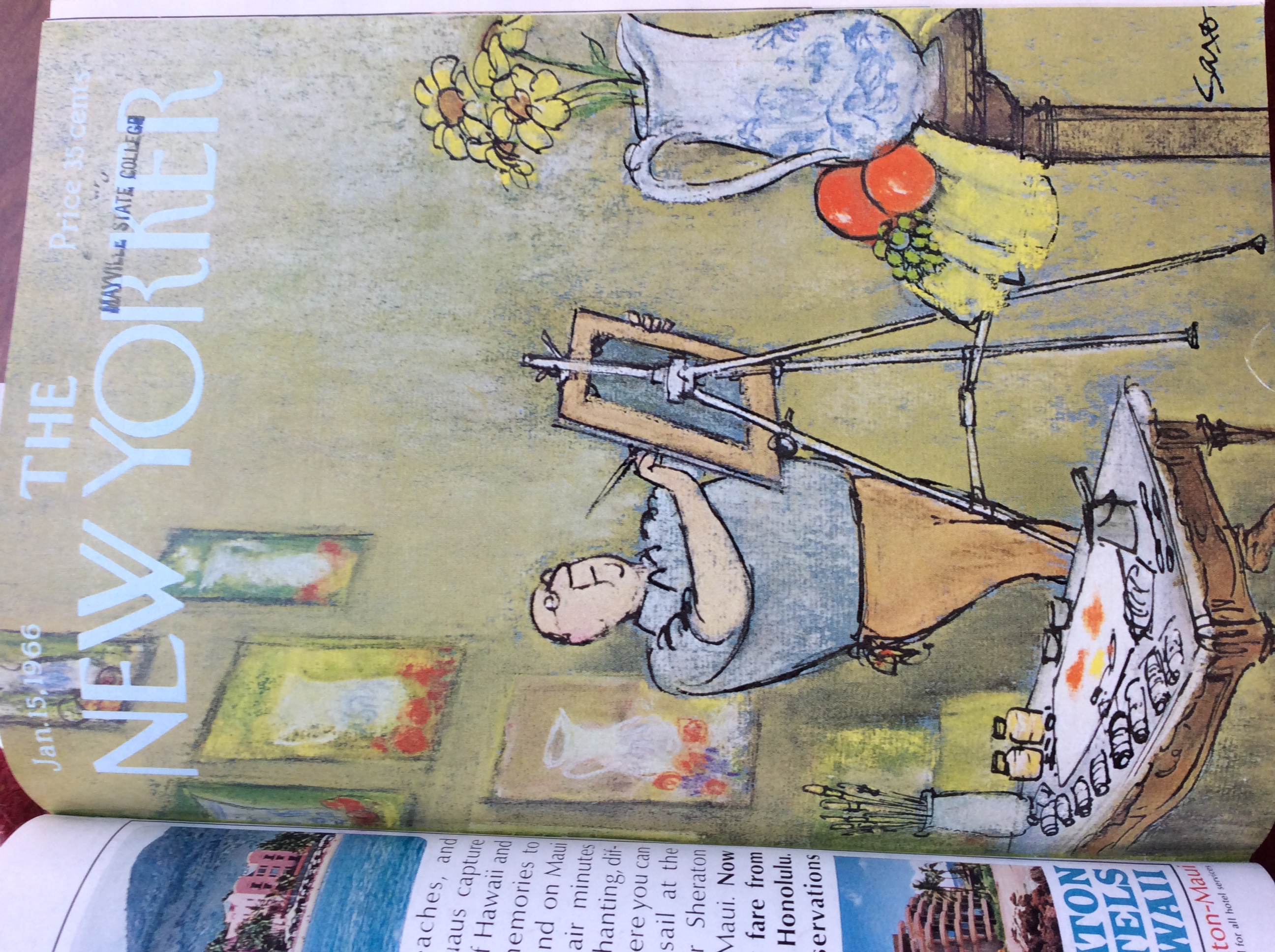
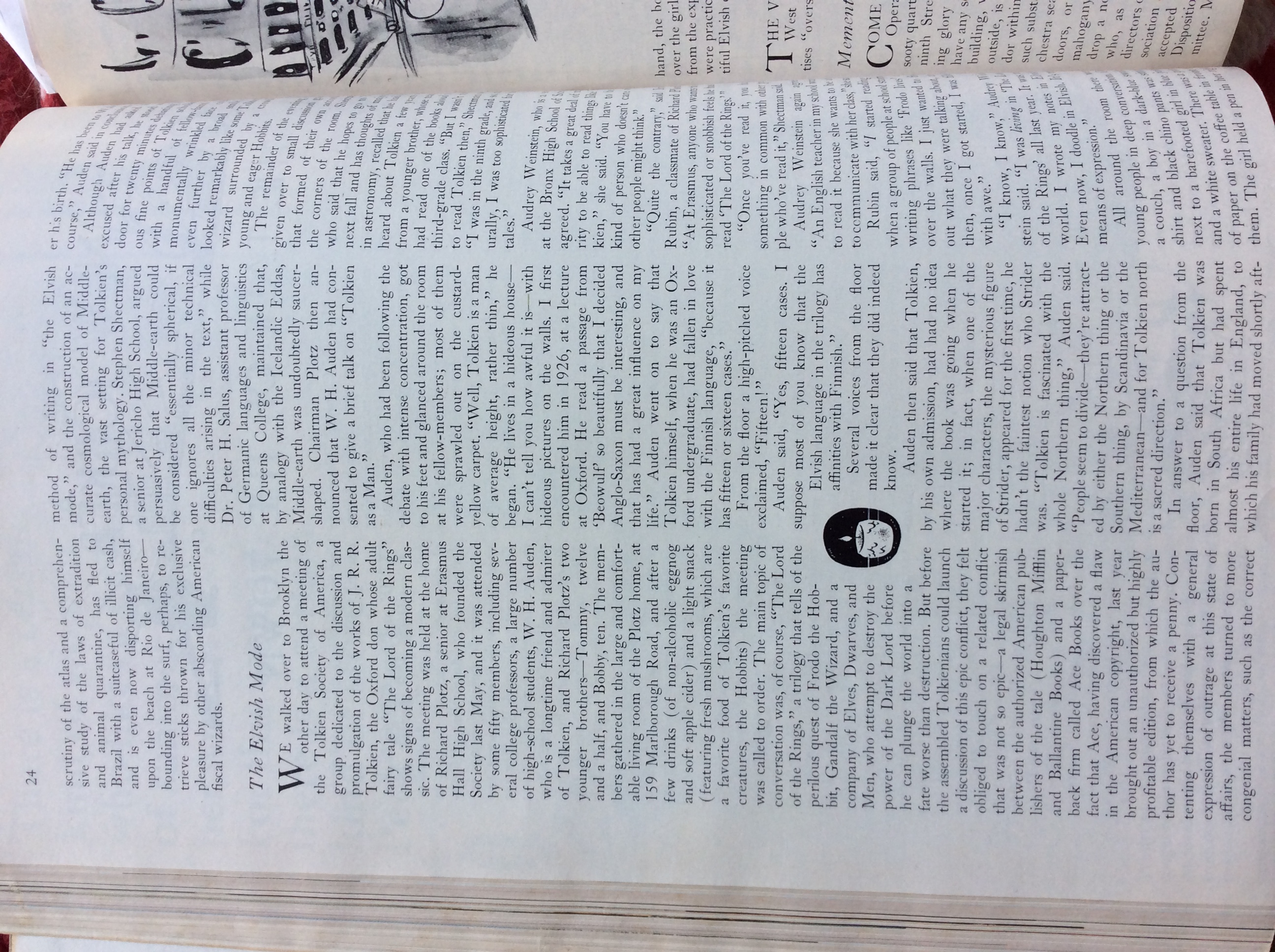
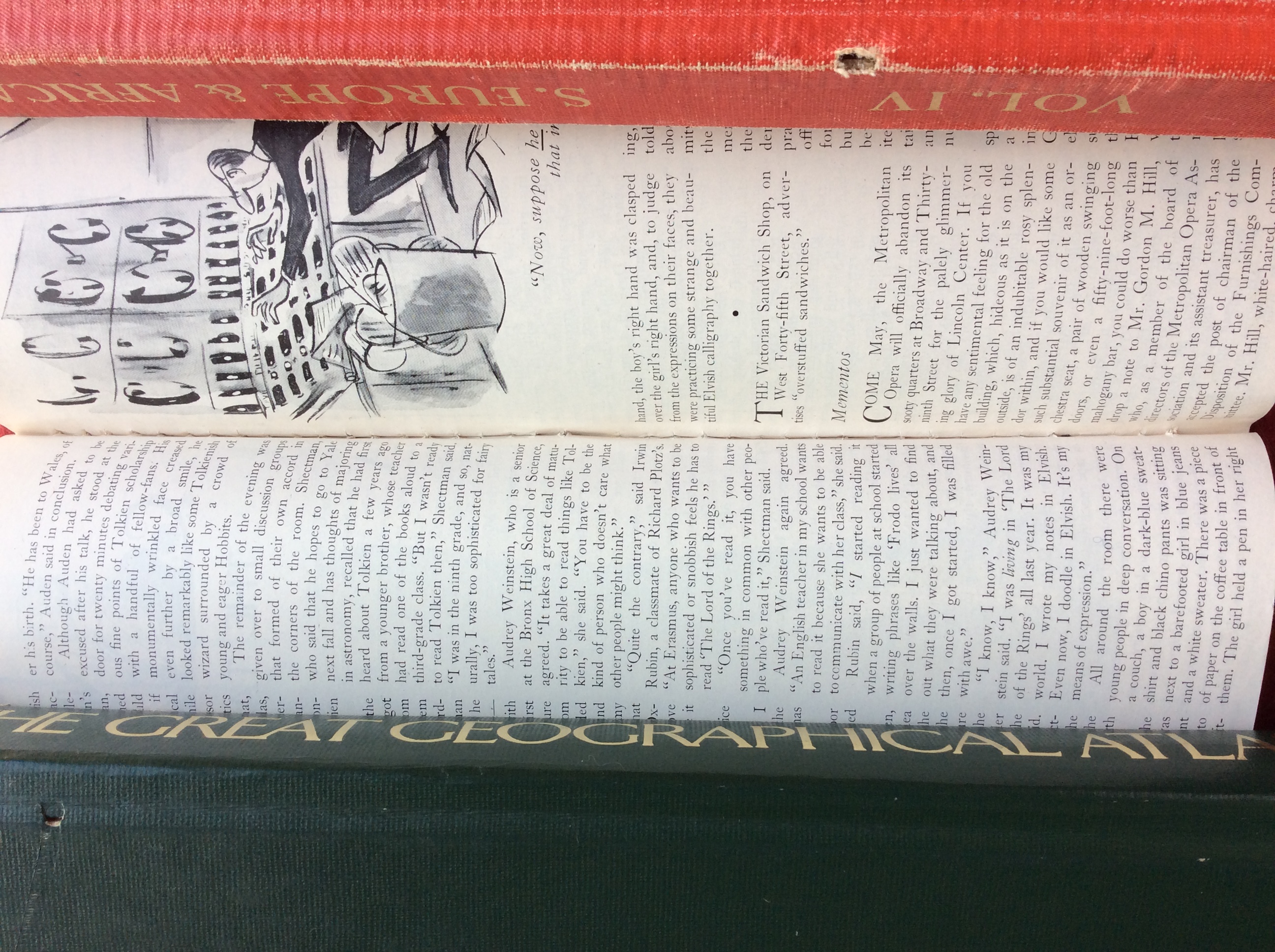


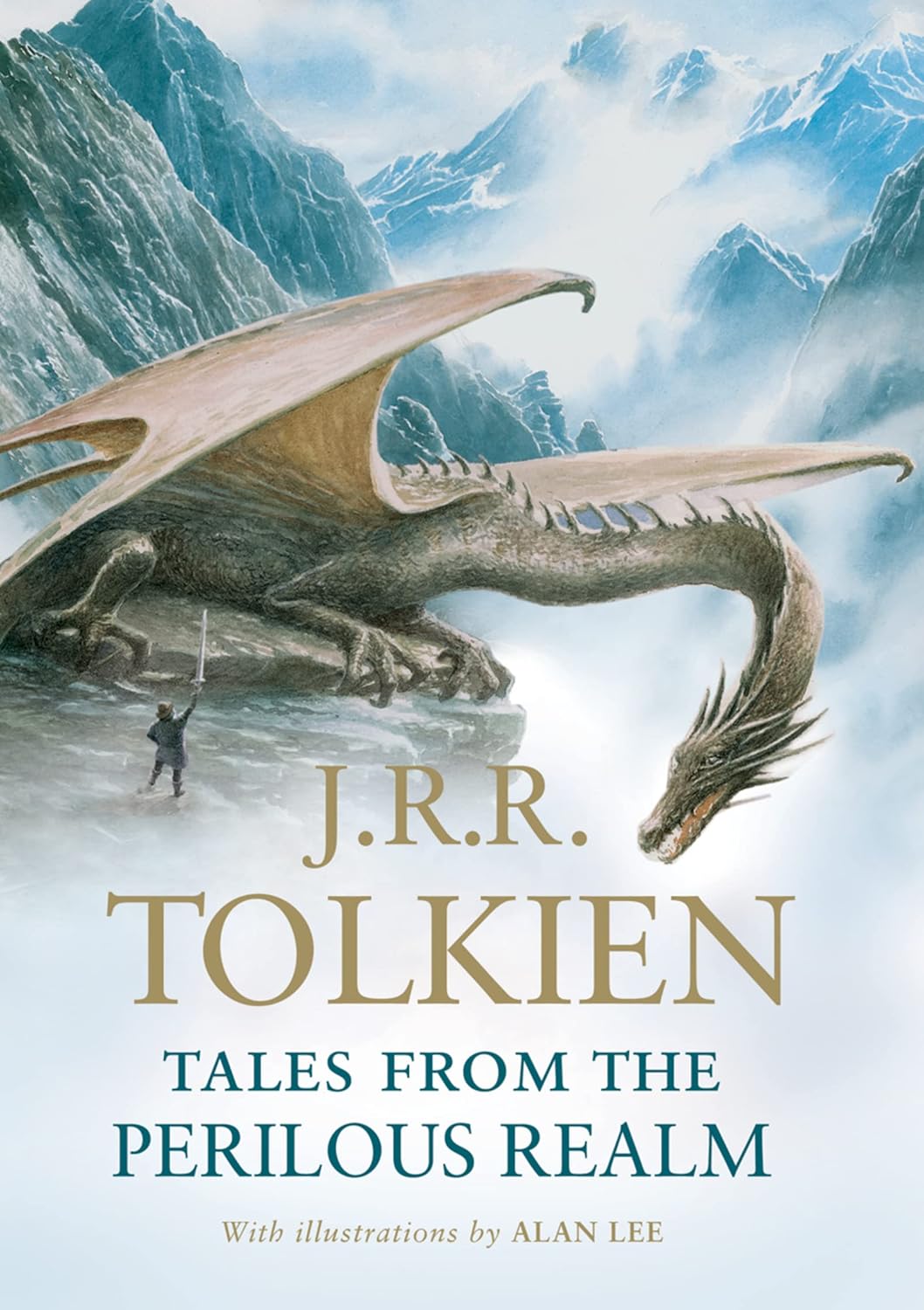
 806
806 514K
514K